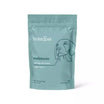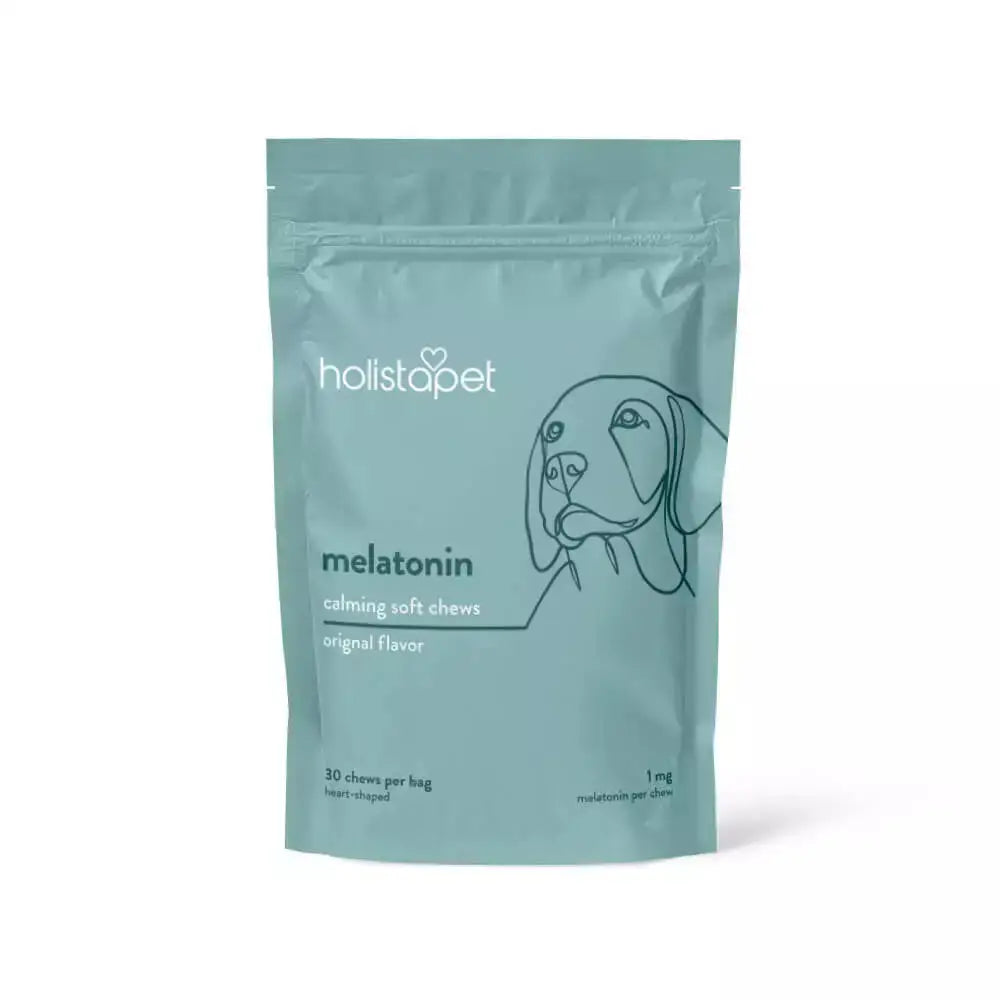It is said that a pet can look like its owner. They may share hair color or facial features, or even how they both are able to gulp down a steak in a similar way. But dogs may have a bit more in common with humans than we think. By looking at a dog's genetic makeup, let's answer the question: "Can dogs get headaches?"
Similar to when your pup has allergies or gets a cold, dogs can also show signs of headaches. Things such as nausea, frequent napping, or avoiding any physical activity are all signs that your dog's head hurts. Let's look at some of the causes of a dog's headache, the signs we can see when they happen, and possible ways to treat their headaches.
Can Dogs Get Headaches?
Although there are only a few studies that have been conducted to demonstrate that dogs can get headaches, many veterinarians agree that they are very much possible. But to fully understand how headaches in dogs occur, it is important to know how headaches occur in humans.
The brain acts as an informer of pain, which channels that information through the body. So when certain items in the body such as nerves, blood vessels, and muscles are constricted or begin to swell, pain in the head is induced, thus a headache.
For dogs, this process is similar because of their similar genetic makeup of nerves and blood vessels to humans. Despite having similar bodily functions to humans, the veterinary community is still unable to concretely determine if dogs get headaches. This is because of our furry friend's inability to vocalize their pain and where it comes from.
With that being said, many animal experts believe that there is good reason to believe that headaches are possible in dogs. Dogs have a more powerful olfactory receptor (sense of smell) than humans, which is one of the key reasons known to cause dog headaches.
Can Dogs Get Migraines?
Migraines are a more intense kind of headache induced by sensitivity to light and sound and can result in nausea and throbbing head pain. With similar internal functions as humans, dogs are suspected of getting migraines as well.
As with any headache, it is best to determine the root cause of the migraine and try to remove the stressor from the dog's environment. These things can include bright light, loud noises, and other unappreciated external factors that may induce a migraine.

Are Headaches Common in Dogs?
Headaches can be a common occurrence in dogs that experience stressful situations or get nervous easily. Especially older and fragile dogs may tend to be more sensitive to noisy sounds and bright lights, leading to more headaches.
Dogs that have some underlying health issues may also be more prone to headaches. These issues can be things such as allergies, head trauma, and other health conditions. Allergies can bring about constant sneezing and irritation of sinuses which can cause headaches.
Every dog breed is unique, and experiences head pain in different ways. So it is best to check in with your vet to determine if your dog is prone to getting headaches and what procedures you should take to combat them.
What Causes a Dog to Get a Headache?
Just like humans, dogs can get headaches for many reasons. Unfortunately, dogs cannot vocalize the source of their problems, so it can be not easy to help them in their time of need. But here are a few possible causes for a dog's headache.
Allergies
Whether it is certain smells, foods, or the weather, dogs can get allergies that can result in a headache. Dog's olfactory receptors are much stronger than humans and can cause much frustration when they come in contact with certain allergens.
Overheating
When the weather begins to get warmer, dogs may suffer from heat exhaustion if they are not hydrated. In addition to the possible chance of overheating, dogs can also suffer head pain due to the heat. If your dog begins to show symptoms such as panting, dry gums, salivating, vomiting, and an increase in pulse, you should bring your dog inside and try to cool them down.
Related: How to Get a Dog to Drink Water: 5 Simple Ways to Hydrate Your Pup
Cold or Flu
When humans get sick with the cold or flu, we tend to want to sleep in all day because of a throbbing headache that usually ensues. The same thing goes for dogs. When our canine friends get sick, they could constantly be sneezing or fatigued, which are all telltale signs your pup is experiencing headaches.
Stress
Although dogs experience many different stresses than humans do, many things can cause a headache. Blaring noises, bright lights, strangers, new environments can all be just some of the reasons your pet feels uncomfortable and irritated. In such cases holistapet has best CBD calming treats which helps dogs to combat stress and feel relaxed.
Excessive Activity
Too much physical activity can also be a cause of a dog headache. Sometimes when your dog is playing just a little too rough or is running around for a long period of time, their body can heat up and eventually lead to a headache or migraine.
Can Dogs Get Headaches from Barking?
Depending on the severity of the barking and the amount of time they spend barking, this can be a potential cause of a dog headache. Barking is a rather physical and strenuous activity that exerts a lot of energy, so, understandably, too much barking can lead to a headache.
Especially since barking comes with constant head motion, this could cause head and neck irritation. If your dog barks a lot, you may want to train them to not bark as often or find the root cause of what they are barking at and remove it.

Signs Your Dog Has a Headache
Now that we understand some of the potential causes of a dog's headache, here are a few symptoms to look out for if your pet's head hurts:
- Hyperactivity or trouble staying still
- Sensitivity to light / seeking out dark places
- Apparent fear
- Aggressiveness
- Unresponsiveness
- Depleted appetite
- Drooling and frequent swallowing
- Not wanting to be touched or pet on the head
- Constant napping
- Throbbing temples
- Clumsiness
Depending on how severe the headache is, your dog may experience one or several of these symptoms. Headaches are not fatal and usually do not last for long periods of time, but keeping your dog comfortable and feeling protected is the best route to take to avoid the situation getting any worse. If you notice these or other clinical signs of headaches worsen, you should take your dog to the get checked out. Veterinary internal medicine will be able to properly analyze the clinical signs and diagnose headaches.
What Can You Do If a Dog Has a Headache?
Each dog that experiences headaches may have a certain routine or method that helps them ease their hurt head. Here are several things you can do to help treat your dog's headaches.
Create a Safe Space
If your dog is experiencing any stress, such as booming noises, creating a safe space for your dog can help reduce their chance of getting a headache. Find an area in your home where they are comfortable and do not feel threatened; give them items with their scent. With their scent and your tender care, they can feel a sense of familiarity and trust. Then let them take the time they need to recover.
Hydrate
Water is as essential to dogs as it is to humans. Dogs need water for their bodies to function properly. If your dog lacks this vital resource, they will develop the following symptoms:
- Headaches
- Increased thirst
- Decreased urine
- Appetite loss
- Lethargy
Dogs get headaches when they lack enough water or become overheated. It's important that you give your dog an ample supply of fresh water in their drinking bowl, especially on hot days, to prevent headaches from occurring.
Without proper hydration, your dog's brain will temporarily shrink due to fluid loss. This will cause your dog to develop head soreness resulting in excruciating headaches. However, once hydrated, their brain will return to its normal state, and their headache will disappear.
Give Your Dog Space
Along with creating a safe space, giving your dog some space while experiencing a headache can be helpful. Depending on their personality, dogs sometimes want to be left alone to deal with their issues solo. As much as you would like to help your pup suffering through a headache, sometimes the best thing to do is provide them with all the comfort they need and let them ride it out independently.
Hot or Cold Compress
For a human, using a hot or cold compress on the forehead is a common sense solution that can help reduce any pain in the head. This also works for dogs. If you notice any symptoms that your dog could be having a headache, a cold or hot compress can help reduce the tension in your dog's neck and head while calming them down.

CBD
If you want to calm your dog down during their head pain episode, why not try some CBD? Cannabidiol (CBD) is a compound derived from the hemp plant known to provide soothing effects to the body. And because CBD does not contain any THC, your pup will not experience any intoxicating effects.
At HolistaPet, we have a wide range of CBD products for animals, including CBD calming chews. These chewy snacks are made with 100% all-natural flavors and broad-spectrum CBD to help keep those pesky headaches at bay.
Stop Petting
Dog owners love to pet their dogs, especially when they're not feeling well. Although dogs might love this form of affection, too much of a good thing can be bad. This is especially true when they're already suffering from a headache.
Constantly petting your dog's head will cause more discomfort and make your dog more uncomfortable. It might be a hard thing to do, but you should refrain from petting your dog's head when they have a headache to prevent any further irritation.
Limit Heat & Sun Exposure
As we previously mentioned, dehydration, often on a hot day, will lead to your dog experiencing headaches. If your pup already has a headache, exposure to sun and heat will cause them more discomfort and prolong their suffering.
To prevent weather-related dehydration, you should limit your dog's exposure to sun and heat. By being proactive about your dog's overheating, you will help prevent headaches from occurring or getting worse.
Here are some ways you can limit heat and sun exposure in dogs:
- Bring your dog inside on warm days: If the weather is too hot outside, you should bring your dog indoors to cool off. A cool place indoors is especially important to do in the hotter summer months.
- Provide adequate fresh water: Frequently replenish your dog's drinking bowl with fresh water. This will ensure your dog stays hydrated throughout the day.
- Provide them with a sturdy and spacious dog house: If your dog likes being outdoors, you should give them a high-quality dog house with enough space for them to comfortably stay in. A dog house will provide your dog with shade, shelter, and protection from direct sunlight and heat.
Can I Give Aspirin To My Dog For Its Headache?
Never give your dog aspirin for their headaches. Although your veterinarian might have prescribed canine aspirin to your dog before, you should avoid giving them human formulations of this medication. Many human migraine medications like aspirin, ibuprofen, and naproxen can be poisonous to dogs. Symptoms such as increased head pain, restlessness, vomiting, heart troubles, and diarrhea will occur. Veterinarians agree that medications meant for human patients should never be employed as treatment options for your dog's headaches.
Human medications you should never give your dog for their headaches include:
- Advil (Ibuprofen)
- Aleve (Naproxen)
- Bayer (Aspirin)
- Motrin (Ibuprofen)
- Tylenol (Acetaminophen)
- Other human non-steroidal anti-inflammatory drugs (NSAIDs)
If you want to give your dog immediate relief, seek immediate veterinary advice. Only a licensed vet will be able to properly diagnose headaches and prescribe appropriate canine medications and treatment options for your pup's ailment.
How Long Do Dog Headaches Last?
Dogs suffer from headaches anywhere from 30-60 minutes. However, the following triggers may prolong your dog's headache and lead to more discomfort:
- Medical Conditions: Underlying health issues your dog may have can worsen headache symptoms. Be on top of your dog's health by taking them to the vet for regular check-ups.
- Climate & Weather: Be aware of changes in the temperature, humidity, altitude, air pressure, winds, and other weather-related triggers when at home or traveling.
- Diet: Certain foods you feed your dog contain nitrates, nitrites, and monosodium glutamate (MSG). These ingredients are common in processed meats and dog foods and should be avoided to keep your dog's headache symptoms from worsening.
- Bright Lights: The intensity of both artificial and natural light can lead to dry eyes and swelling. Whether it's from artificial indoor light or sunlight, you should keep your dog in an environment where the light is not intense or blinding.
- Noise: Extremely loud noises can trigger migraines in your dog. The intensity of the noise and the length of time the disturbance lasts can prolong your dog's headache and suffering. If possible, limit, reduce, or silence these loud noises or restrict your dog's exposure to them.
Final Thoughts - Can Dogs Get Headaches?
As humans, we all know how dreadful headaches can be, and the last thing we want for our pets is to see them suffer through the same thing. There are several reasons why dogs get headaches. Although headaches in dogs are generally normal, it is important to recognize the symptoms to prevent the situation from getting worse.
So whether you take your pup to the vet, provide a safe space for them to hide, or give them some CBD to calm them down, dog headaches are manageable with the right treatment and care.

























![Why Does My Dog Lick Everything? [Normal vs. Problematic Behavior]](http://www.holistapet.com/cdn/shop/articles/why-does-my-dog-lick-everything.jpg?v=1686692332&width=820)












Leave a comment
This site is protected by reCAPTCHA and the Google Privacy Policy and Terms of Service apply.